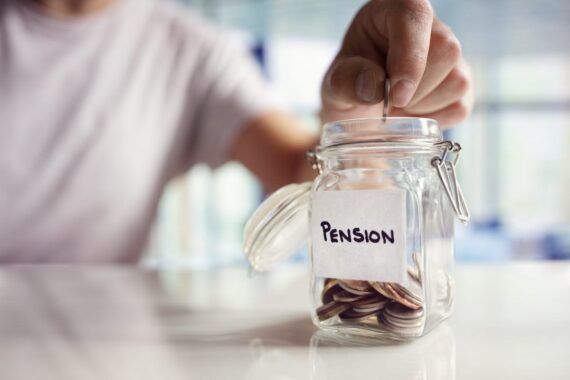Thousands of NHS pension members, including GPs, have been issued inaccurate statements.
NHS pensions statements for 2020/21, issued last month, misrepresented the growth in some members’ pensions, which meant some were told they owed huge tax bills.
Pension savings statements are sent to members who may have an annual allowance charge, which applies when an individual’s pension grows by more than the maximum amount of tax-free growth in one year.
The NHS Business Services Authority (NHSBSA) has said it is working to reissue corrected statements to all those affected.
NHS pension specialist adviser at Quilter Graham Crossley told Pulse he was aware that around 2,800 ‘higher-earners’ in the NHS pension scheme – including GPs, dentists, hospital doctors and senior managers – were affected by the errors.
Mr Crossley, who first raised the alarm over the issue, said he was aware of one doctor – a psychiatrist – whose inaccurate statement would have meant a tax bill of £1.3m.
He told Pulse: ‘Their growth was three and a bit million so the tax bill [would have been] £1.3m.
‘[But] we knew from previous analysis that the actual tax bill for that year was around about £6,000.’
The correct growth was ‘in the 40 thousands rather than the millions’, he said.
He added that the ‘benefit of that one is that the number is so ludicrous that it’s easy to spot’ but that the ‘bigger issue’ is that many pensions scheme members may have smaller errors that are less obvious.
He said: ‘The trouble is that within those 2,800 there will also be included some people who would have growth on there that now says say £60,000 instead of £40,000 and so they might be paying an extra £10-11,000 and their accountant might look at it and think “actually that looks quite normal compared to previous years”.
‘Anecdotally we’ve seen some that have gone on into the hundreds of thousands [and] we know that they are completely wrong.’
Mr Crossley added that he is aware of one GP who would have ‘ended up over paying a tax charge by about £16,000 pounds’ if they had processed their self-assessment on the basis of the uncorrected statement.
NHS Pensions told him the inaccurate statements were due to ‘an error in the data being transferred between systems’, he said.
He added: ‘In fairness, NHS pensions have been quite open and transparent about this one and quick to resolve, which is a breath of fresh air.’
A statement published by the NHSBSA said: ‘We have become aware of an error that may have affected some pension savings statements dated between 20 April and 27 April 2022. These statements were issued on 28 April 2022.
‘As a precaution, we are recalculating and issuing new statements to all members who have been sent a statement issued on this date to ensure that anyone affected receives an updated statement as soon as possible.
‘We are writing directly to all members who may have been affected to let you know that you will receive this updated statement soon.’
An NHSBSA spokesperson reiterated the statement and added that it is ‘continuing to undertake robust checks to determine exactly how many members are affected’.
It said: ‘Pension savings statements provide members who could be affected by annual allowance with the figures they need from the NHS Pension Scheme to be able to calculate if they have annual allowance charge, taking into account any other pensions they may also have.
‘If a member does have an annual allowance charge, they are required to report this to HMRC. The error appears to be in how the figures we provide are presented on the statement, however the figures in the member’s record remain correct.’
‘We apologise for any inconvenience this may have caused’, it added.
Under the current NHS pension scheme, the highest-earning GPs pay at least 14.5% in contributions, but a tapered annual allowance limits the amount of money that can go into the pension pot each year without facing significant tax penalties.
The pensions taxation rules, in particular around annual and lifetime allowances, push GPs to reduce their hours or retire early to avoid large tax bills.
Ongoing GP pension errors
In March, it was revealed that almost 20,000 GP pension records were ‘in error’ and that NHS England is reviewing Primary Care Support England (PCSE) services amid ‘administration issues’.
GPs were compensated £1.5m for pension contribution errors last year.
Meanwhile, Pulse revealed last year that NHS England had paid out thousands of pounds in compensation to GPs for mishandling their pensions but has banned them from talking about it.
The portal has been plagued with issues since it launched in June 2021 and the BMA has warned that practices must not be left to correct errors in it and that GPs must be compensated for any time and money spent putting things right.
But GPs have faced years of problems around discrepancies in information about their pension pots.
In 2018 consultancy firm PwC was appointed to help review all GP pension data, which NHS England said would have a ‘significant’ impact on a ‘large proportion of the GP community’.
But at the start of 2020, it was revealed only one in four GP pension records for 2017/18 were up to date.


















READERS' COMMENTS [1]
Please note, only GPs are permitted to add comments to articles
Look for errors?
With pcse it’s looking for anything that’s actually right that’s more difficult.
No correct TRS for me since 2016.
A collection of hundreds of CAS enquiry numbers, thousands on accountant and the help of the BMA means I have a chance of getting it right possibly this year.
Tbh maybe easier just to quit and get them to calculate it properly